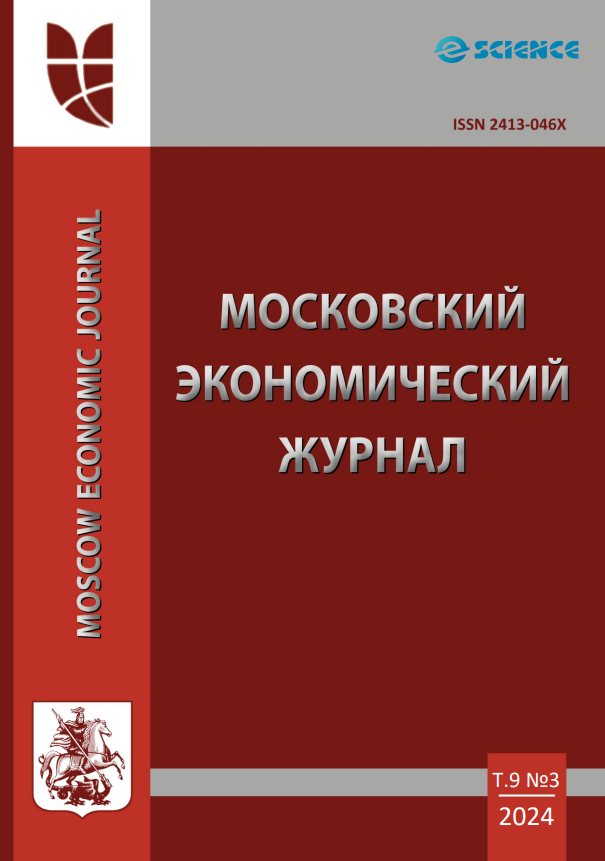UDC 005
In the second article of his series, the author examines the profound changes that have occurred over the past few decades in what business is and the evolution of views on what the purpose of companies is. If in the past it was generally accepted that a company should pursue the interests of its shareholders, now the dominant concept has become the concept of stakeholders, which include, in addition to shareholders, everyone who comes into contact with the results of the organization's activities. The author cites as an example one of the first attempts to implement such an approach, which was undertaken more than 100 years ago by Henry Ford, and outlines the consequences of the subsequent court decision for law enforcement practice in the United States. The author raises a number of pressing questions that, in his opinion, remain contradictory and unresolved in the application of the stakeholder concept in practice, despite its practically uncontested general acceptance. The article also discusses the practical implementation of the stakeholder concept in the form of formulating sustainable development policies at national and intergovernmental levels, including the so-called ESG principles, analyzing each component of these principles (ecology, social responsibility and corporate governance), and also provides positive and negative examples of such implementation by specific companies. The author concludes that despite the ubiquity of statements and declarations about business responsibility, they very often do not correspond to reality. Despite this, the author believes that the implementation of ESG principles remains an important priority for companies, including because compliance with ESG in modern conditions becomes necessary when receiving corporate financing.
business, responsibility, shareholders, stakeholders, sustainable development, ESG, ecology, social responsibility, corporate governance
1. Gulius N.S. Etika delovyh otnosheniy. Uchebno-metodicheskoe posobie - Tomsk, izdatel'stvo Tomskogo gosudarstvennogo universiteta, 2012
2. Zav'yalova E.B. Korporativnaya social'naya otvetstvennost': evolyuciya podhodov i idey / E.B.Zav'yalova // Finansovyy biznes. - 2018. - №2 (193). - S. 26-31.
3. Kaneman D. Dumay medlenno... reshay bystro. - M., AST, 2017
4. Matveev P.E. Etika. Osnovy obschey teorii morali. Kurs lekciy. - Vladimir, 2006 [Elektronnyy resurs] - URL: https://dspace.www1.vlsu.ru/bitstream/123456789/1294/3/00325.pdf (data obrascheniya: 01.12.2023)
5. Model' prinyatiya eticheskih resheniy PMI (EDMF) [Elektronnyy resurs] - URL: https://www.pmi.org/-/media/pmi/documents/public/pdf/ethics/ethical-decision-making-framework.pdf?rev=f1cd0adaeaae485998a2a5df39dbfc6f&sc_lang_temp=ru-RU (data obrascheniya: 01.12.2023)
6. Nastupil li moment istiny dlya etiki i social'noy otvetsvennosti biznesa? Global'noe issledovanie v oblasti soblyudeniya principov delovoy etiki. 2020 god. EY Forenzik. [Elektronnyy resurs] - URL: https://assets.ey.com/content/dam/ey-sites/ey-com/ru_ru/topics/forensic-integrity-services/ey-global-integrity-report-rus.pdf (data obrascheniya: 01.12.2023)
7. Sarna A. Ya. Tehnologii vozdeystviya na auditoriyu v sovremennom media-prostranstve // Vestnik Sankt-Peterburgskogo universiteta. Sociologiya. 2020. T. 13. Vyp. 2. S. 218-235. https://doi.org/10.21638/spbu12.2020.207
8. Storchevoy M.A. Normativnaya etika biznesa: problemy teorii//Vestnik Sankt-Peterburgskogo universiteta. Ser.8 Vyp.2 , 2009 - S.142-163
9. Chichovachki P. Prizrachnoe zdanie «istinnoy morali» Kanta//Eticheskaya mysl'. Vypusk 7. RAN, Institut Filosofii - M., 2006.
10. Etika biznesa: Uchebnoe posobie dlya vuzov i biznes-shkol./ Pod obsch. red. P.A. Kal'nickoy - M., 2012
11. Bowen S. A Practical Model for Ethical Decision Making in Issues Management and Public Relations//Journal of Public Relations July 2005 [Elektronnyy resurs] - URL: https://www.researchgate.net/publication/287216766_A_Practical_Model_for_Ethical_Decision_Making_in_Issues_Management_and_Public_Relations (data obrascheniya: 01.12.2023)
12. Business ethics//OpenStax, Rice University, 2018 [Elektronnyy resurs] - URL: https://openstax.org/details/books/business-ethics (data obrascheniya: 01.12.2023)
13. Carrol A. A History of Corporate Social Responsibility: Concepts and Practices//The Oxford handbook of Corporate Social Responsibility (pp.19-46). [Elektronnyy resurs] - URL: https://www.researchgate.net/publication/282746355_A_History_of_Corporate_Social_Responsibility_Concepts_and_Practices (data obrascheniya: 01.12.2023)
14. Enderle G. Business Ethics in the Intercultural and Global Context: A Conceptual Framework [Elektronnyy resurs] - URL: https://www.ssoar.info/ssoar/bitstream/handle/document/34728/ssoar-zfwu-2000-3-enderle-Business_ethics_in_the_intercultural.pdf?sequence=1 (data obrascheniya: 01.12.2023)
15. Etzioni A. The Moral Dimension. Toward A New Economy. - Free press, 1990
16. MacDonald C. Coke claims to give back as much water as it uses. An investigation shows it isn’t even close.// The Verge, 31 May 2018 [Elektronnyy resurs] - URL: https://www.theverge.com/2018/5/31/17377964/coca-cola-water-sustainability-recycling-controversy-investigation (data obrascheniya: 01.12.2023)
17. Pohl R. F. (ed.) Cognitive illusions: Intriguing phenomena in judgement, thinking and memory. Psychology Press, 2016
18. Trevino L., Nelson K. Managing Business Ethics: Straight Talk about How to Do It Right. - Wiley, 6th edition, 2013
19. Velasquez M. Business Ethics: Concepts and Cases - Pearson, 8th edition, 2017











